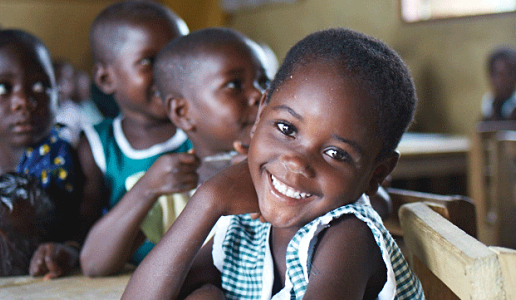Cash Incentive Improves Malawian Girls’ School Attendance

Global poverty is connected to the lack of access to education that many young girls face. In Malawi, a program offers cash incentives to young girls and their families in order to encourage school attendance. The results have exceeded expectations of the girls’ school attendance, and there are also additional health benefits for these young women.
Young girls are often not encouraged to attend school because their parents do not understand the value of education for girls or would prefer for them to help out at home. A recent extreme case in Pakistan is a clear example. A father strangled his three girls to death because he did not want to “waste money” on their education and felt that the girls were a burden to his family.
While stories such as this one are shocking, the conditional cash transfer program in Malawi works to help alleviate the barriers to education for young girls and their families. On the other hand, the father of the young girls in Pakistan refused to provide them with any money, and their school fees had to be paid for by their maternal grandparents.
The Zomba Cash Transfer program in southern Malawi offers girls and young women aged 13 to 22 and their parents up to $15 per month if the girls attend school regularly. An additional group in the study received the money without conditions, and a control group did not receive any money.
Improvements in school attendance were observed after 18 months. There was no significant difference between the two groups that received the cash payments, suggesting that education can be valued without forced restrictions if families can afford to send their children to school.
In addition to the increased school attendance, there were changes in the sexual behavior of these young girls. Girls had less sex and chose safer, younger partners. Child marriage and teenage pregnancy were also reduced. Most significantly, the International Center for Research on Women states that there was a “reduction by 60 percent of HIV prevalence rate and [a decrease of the] HSV2 (herpes simplex virus) infection.”
The program targeted 23,561 households in seven of Malawi’s districts and has the potential to be scaled up even further. In addition to sending their children to school, families used the money to buy food, medicine and farming supplies, and to travel to the hospital to buy antiretroviral drugs to treat HIV/AIDS. The money can help lift families out of poverty and empower young girls. With proper education, these girls can then participate fully in society and help break the devastating cycle of poverty for their own children.
David Bull, Executive Director of UNICEF U.K., believes that investing in education for girls benefits everyone in society. Girls will specifically benefit from the obtainment of skills to participate in society and protect themselves. However, businesses will also be able to hire more qualified women and broaden their customer base. When half of a country’s population is prevented from participating fully in the economy, economic growth will be stunted.
Global health and development, as well as the protection of human rights for girls, are central global goals. While conditional cash transfer programs need to be further evaluated to understand their sustainability and long-term effects, there is promise for great improvements in gender equality.
– Iliana Lang
Sources: Boston University, Daily Mail, The Guardian, International Center for Research on Women, National Center for Biotechnology Information, University of North Carolina at Chapel Hill
Photo: Camfed
